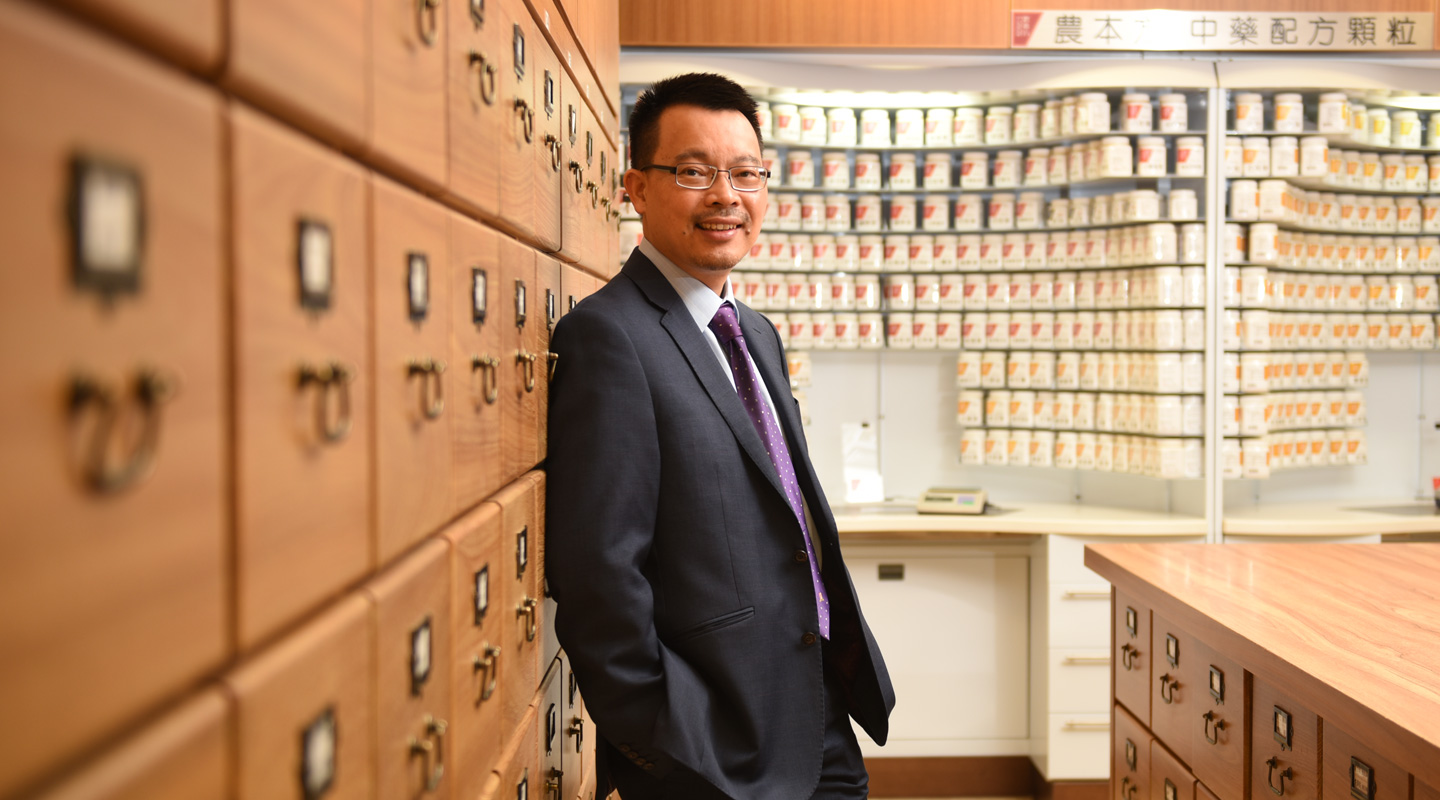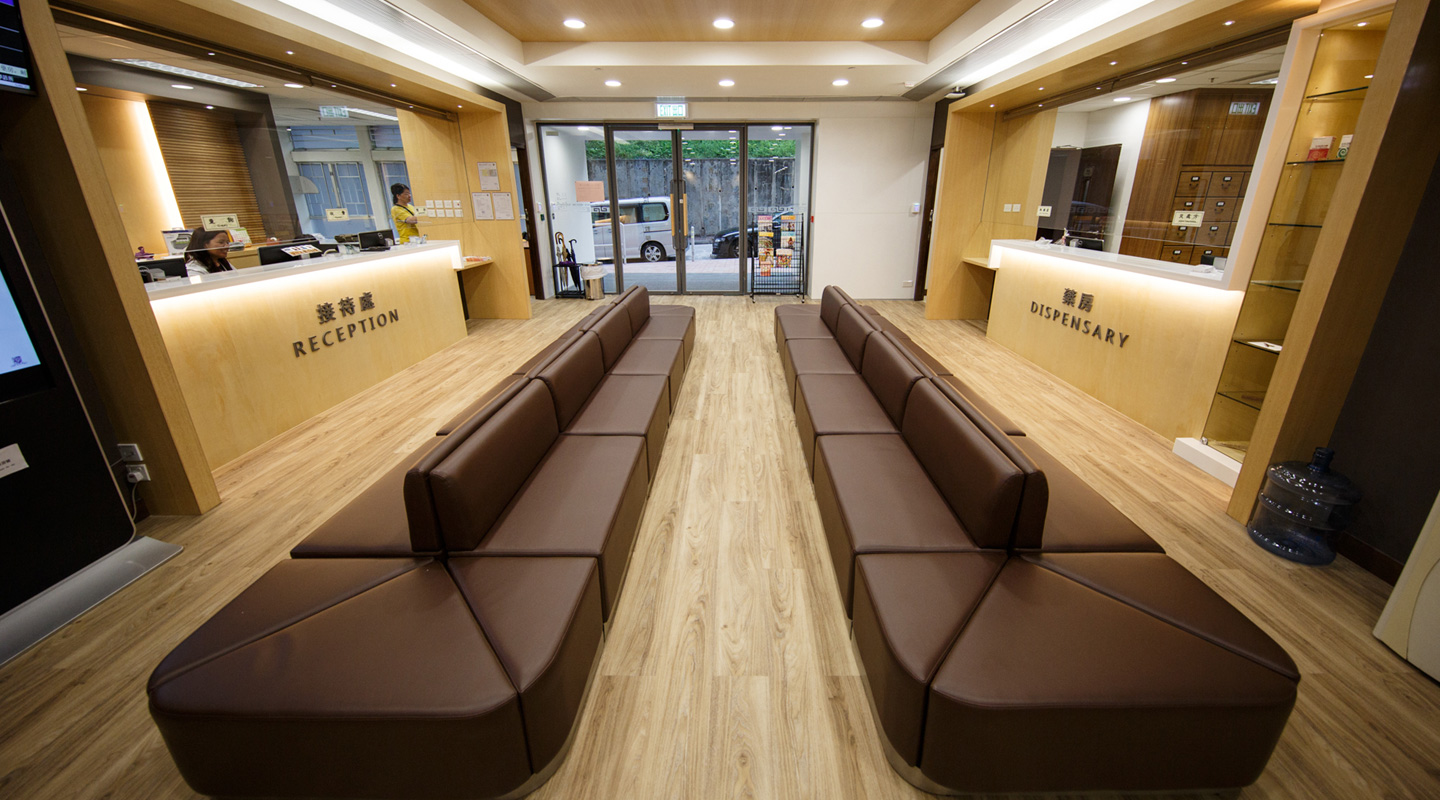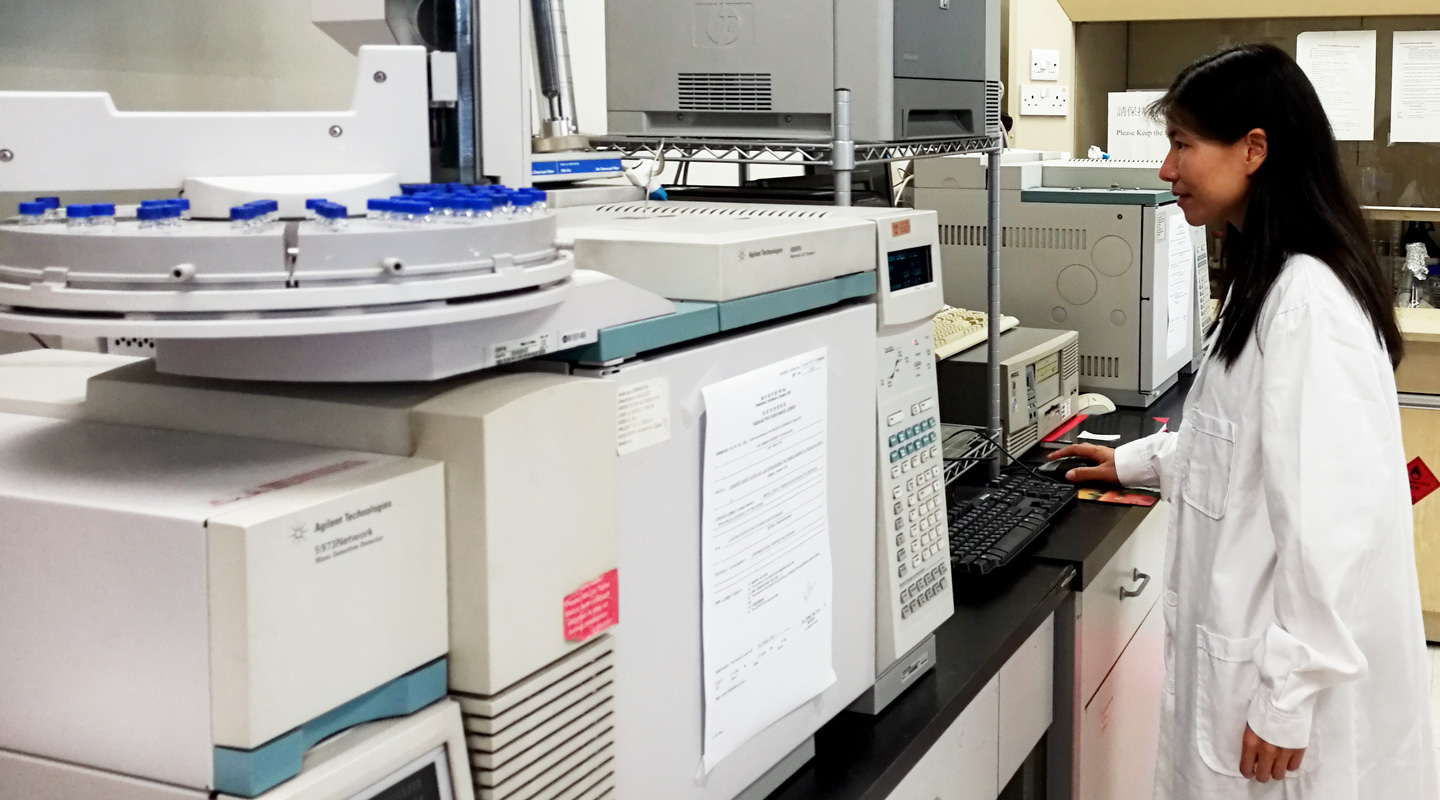Fresh Sprouts of an Ancient Root
School of Chinese Medicine Brings Traditional Medical Practice to New Heights

Traditional Chinese medicine (TCM) goes back 3,000 years, but still remains lively and upbeat in today’s world. A case in point is the newly refurbished TCM teaching clinic located in the Sino Building on campus. Behind its quaint wooden front door, glass cabinets displaying bottles of medicinal herbs line the hallway. Instead of going to a receptionist, patients check in at a self-service kiosk with their smart cards. After obtaining the tickets they can ensconce themselves in the spacious and well-lit lobby, where LED displays flash ticket numbers and direct patients where to go for service. After taking the patient’s pulse, the practitioner reaches not for the pen but the keyboard to prescribe. At the dispensary, the traditional steelyards have been replaced by QR code readers and electronic scales. The dispensers are as organized and meticulous as you would expect of lab researchers.
Shortly after the founding of the School of Chinese Medicine in 1998, the teaching clinic was set up to serve the practicum needs of the students. It underwent a major reconstruction and refurbishment last year and was given a new appellation─The Chinese University of Hong Kong Chinese Medicine Specialty Clinic cum Clinical Teaching and Research Centre, which hints at two of the School’s new fortes: specialization and clinical research. CUHK Newsletter talked to Prof. Lin Zhixiu, then Acting Director of the School, on the latest development of Chinese medicine in Hong Kong and the School’s role in it.
Special Treatment
Under the current registration system in Hong Kong, the ancient medical practice is broadly divided into internal medicine, acupuncture and bone-setting. If a TCM practitioner claims to specialize in any other field, it would constitute an offence under the Chinese Medicine Ordinance. The situation is a far cry from that of modern medicine which has enjoyed a long history of specializations.
In view of the ever-increasing demand for specific and personalized treatment, Professor Lin believes the practice of Chinese medicine in Hong Kong needs to move toward specialization, i.e., opening up more subsets under internal medicine like cardiology, gastroenterology, nephrology and rheumatology.
‘The benefits of specializing are three-pronged. First, it allows TCM practitioners to focus on their areas of interest and build their own expertise. Second, just as what it did to modern medicine, specializing will raise the status of Chinese medicine practitioners. Finally, patients will be able to identify the most suitable specialists for treatment,’ said Professor Lin.
In 2014, the TCM industry and the three universities that offer Chinese medicine programmes joined forces to form the Working Group for the Development of Chinese Medicine Specialties in Hong Kong. As a core member of the group, Professor Lin said, the School is actively driving TCM specialization. Since many practitioners in the University TCM clinic are qualified specialists, the clinic is poised to branch out to more services. Gynaecology, bone-setting and dermatology will be the first in line.

Putting TCM to the Test
Chinese medicine is heavily rooted in traditional philosophy. Take yin and yang, for example. The theory was originally used to understand and explain the natural world─the sunny side of a hill is yang while the shady side is yin. The concept was later applied to explain pathology─disease occurs when the body’s yin and yang are out of balance. An excess of yang results in too much heat, while an excess of yin produces too much cold.
Its philosophical foundation is also the reason why Chinese medicine has often been spurned as lacking quantitative measures and scientific evidence. For those who use logic and rationality as the only criteria for science, Chinese medicine is at best a pseudo-science and at worst, superstition.
Professor Lin opined that just because Chinese medicine is philosophy-based does not mean it is at odds with science and rational thinking. In Hong Kong, the practice of TCM has brought in plenty of scientific elements, like chemical analyses of herbal ingredients and their medicinal effects. In 2002, the Department of Health rolled out the Hong Kong Chinese Materia Medica Standards Project. As one of its earliest participating institutions, the School has laid down quality and safety standards for 51 herbs out of a total of 275.
Another important front for modernizing TCM is clinical research. A most recent study conducted by the School is on the effectiveness of acupuncture treatment for overactive bladder. From TCM’s perspective, the syndrome stems from qi deficiency in the kidney and the bladder will therefore not be able to hold the urine. Acupuncture treatment can correct the imbalance and ease the symptoms. Since September the School has been recruiting patients with the disease who will receive 16 rounds of acupuncture treatment. Controlled clinical trials will be conducted to assess the remedy’s safety and effectiveness.

Straddling East and West
As announced in the 2017 Policy Address, the government is planning for the territory’s first-ever Chinese medicine hospital at a site in Tseung Kwan O. Professor Lin, who has actively engaged in its consultation process, revealed the hospital will run on the model of integrated Chinese-Western medicine, which is in tune with the School’s curriculum design.
The six-year Bachelor of Chinese Medicine Programme features a mix of Chinese and Western elements, with the former accounting for 80% and the latter 20%. Modern medicine courses taught by the Faculty of Medicine include anatomy, basic physiology, modern diagnosis, etc. Since 2013 when the School was transferred to the Faculty of Medicine from the Faculty of Science, its collaboration with modern medicine has surged to an all-time high.
When asked about the necessity of introducing Western medicine to the curriculum, Professor Lin answered, ‘Nowadays many patients go to a TCM clinic with their medical check-up reports. If the practitioners can’t read the data and fail to offer advice, how can they be trusted? A solid TCM training combined with skills in conventional medicine is essential to practitioner-patient communication.’
The teaching clinic is both a symbol of TCM modernization in Hong Kong and a consequence of it. As the Chinese medicine hospital and TCM specialties come on the scene, the status of TCM practitioners and recognition of this ancient cure are bound to perk up. Rosy career prospects await future graduates of the School of Chinese Medicine.
Editor’s Note
Prof. Leung Ting-hung has been appointed as Director of the School of Chinese Medicine with effect from 1 November.
This article was originally published in No. 506, Newsletter in Nov 2017.

